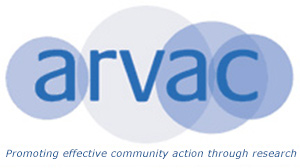Like ARVAC, GMCVO has long realised the contribution that research led by community-based organisations can make to the wider research and policy landscape. Yet, from lack of capacity to lack of credibility, small-scale community-led research faces many challenges. The new guide “Good Evidence: a guide to help community organisations produce research that gets taken seriously”, published by GMCVO-led project Ambition for Ageing, hopes to support people in community organisations who are not research specialists to undertake research that is seen as trustworthy. The guide has been informed by learning from the Ambition for Ageing research project Ageing Equally? ( https://www.ambitionforageing.org.uk/ageingequally ), which supported small community organisations with conducting research, and GMCVO’s experience of supporting research in the Voluntary, Community and Social Enterprise (VCSE) sector in Greater Manchester.
Community-based organisations are well-positioned to produce valuable and unique insights through research. Small-scale community-led research can give voice to communities that may not be heard in the broader discourse and whose needs are not adequately considered as a result. The trust organisations enjoy in the communities they serve puts them in a unique position to conduct research and generate important insights that may not easily be accessible to mainstream researchers.
Nevertheless, small organisations’ capacity to conduct their own research, which has always been small to begin with, may have been further compromised by the long-term impacts of the pandemic and a decade of austerity. It is widely acknowledged that staff and volunteers in community-based organisations are so busy with day-to-day delivery that dedicating resources towards reflection and research has always been a tall order.
In this context, the question of whether doing research is actually worth doing may be asked. After all, when community-based organisations produce evidence, the credibility of this evidence is often questioned because many community researchers are self-trained in research. In addition, there is a perception that small organisations are undertaking research simply to prove a case they want to make on behalf of themselves or their community, rather than as being objective inquirers.
In an environment of ever shrinking resources and growing demand it is more important than ever to make the time and resources spent on research count. Doing research that is not taken seriously by its audiences is a waste of time that no community organisation can afford. Doing research that is not taken seriously can also undermine an organisation’s credibility with those who participated in the research. With our guide, we hope to equip organisations with the information needed to make the right choices with regard to planning and conducting research to increase the likelihood that their research is taken seriously by others.
A striking realisation that we had when supporting small organisations with their research on the Ageing Equally? programme was that most people’s perception of research focusses on the gathering of data, rather than on the analysis. Qualitative research methods are often fun and spark one’s interest about the exciting types of things one might do to engage with participants. However, an emphasis on innovative research methods often overshadows the question of how to get the right data to answer the research question, a problem that is compounded by the fact that the desire to do research often supersedes the formulation of clear research questions. Further, because qualitative research can seem deceptively intuitive unexperienced researchers may not foresee the unwieldy nature of the resulting data. Therefore, our guide covers all phases of a research project, including the formulation of research questions and analysis. Of course, we were keenly aware that there is a wealth of other resources out there, including the ARVAC toolkit. Therefore our guide provides quick overviews of how trustworthiness, ethics and bias can be applied to each research stage, seeking to complement what is available by signposting readers to these.
The guide is available here: https://www.gmcvo.org.uk/publications/good-evidence-guide-help-community-organisations-produce-research-gets-taken-seriously
Ambition for Ageing is funded by the National Lottery Community Fund as part of their Ageing Better Programme. Susanne Martikke is a researcher at Greater Manchester Voluntary Organisation
